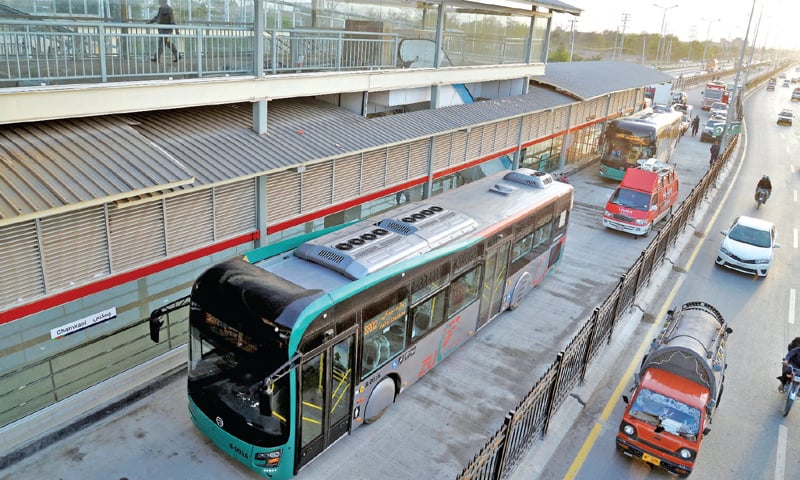Fare for the much-delayed Peshawar Bus Rapid Transit (BRT), an additional Rs4.28 billion is still needed for the completion of which, will be kept at a minimum Rs10 per trip, a private media outlet has quoted Khyber Pakhtunkhwa (KP) government officials as saying.
According to reports, it was proposed by the KP government during a steering committee meeting chaired by KP additional chief secretary, wherein all participants agreed that the minimum fare from point A to point B should be kept as low as Rs10, while the maximum fare should be Rs50.
While a majority has agreed to the recommendation as per which ticket pricing will vary with the distance and the number of stations travelled, some have suggested keeping a fixed ticket price.
The final decision will be taken by KP Chief Minister (CM) Mahmood Khan.
It merits a mention that Peshawar Development Authority (PDA) had in February written to the KP government a letter stating that the team leader of BRT had prepared PC1 for the revised fund. It added that Rs1.5bn of the additional funds will be spent on the route between bus station numbers 19 to 31, while Rs980m will be spent on the route between bus station 1 to 8.
In addition, a total of Rs1.5bn will be spent on Trans Peshawar office, bus depot and parks. Similarly, Rs1.35bn would be required for consultant supervision.
KP Information Minister Shaukat Yousafzai, while talking to media, had said that the cost of BRT has been increased by Rs4bn, with which the cost of BRT has touched Rs70bn. He had added that the provincial government will provide the additional funds for the project, the approval of which will be taken from the Executive Committee of the National Economic Council (ECNEC).
Yousafzai had also said that the BRT project would be completed in April this year, the credit of which goes to CM Khan. “We will complete the project in March and it would cost Rs35bn,” he had said, adding that despite being a third-generation project, it would cost less as compared to Lahore’s BRT project which cost up to Rs 40 billion in 2011.







